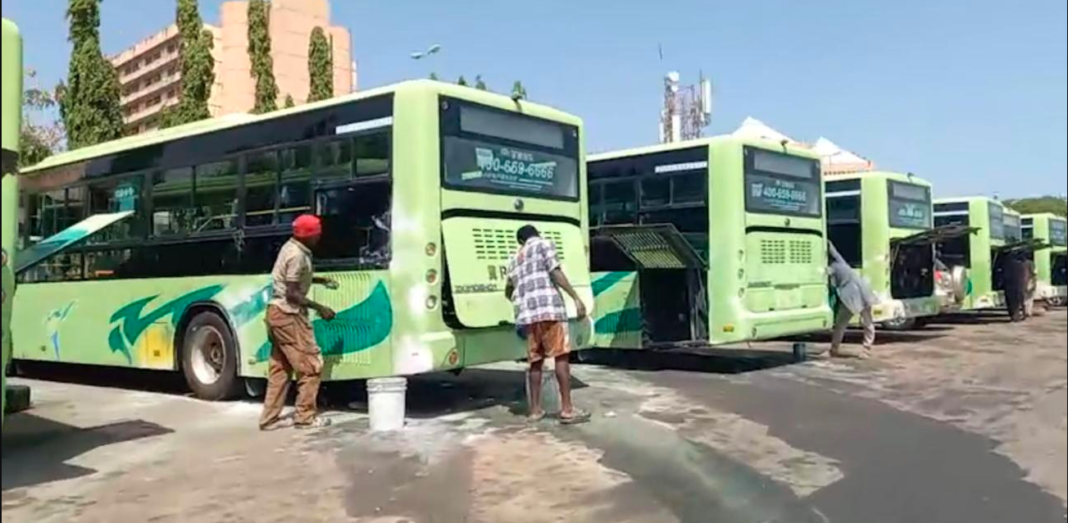Headline News has learned that the President Bola Tinubu-led government has acquired a fleet of “used” high-capacity buses for mass transit, aiming to address transportation challenges arising from the fuel subsidy removal. Our reporters observed these buses at the Federal Secretariat car park in Abuja, where a team of panel beaters, technicians, and painters were diligently working to repair and rebrand the dilapidated vehicles.
The panel beaters were engaged in bodywork, while painters endeavored to revitalize the buses by applying fresh coats of paint to the dented areas. Some of the buses were noted to have oil dripping from their engines. Investigative efforts by Headline News revealed that these buses were originally owned by the Federal Ministry of Transport, part of a palliative program intended to alleviate the rising cost of transportation.
A closer look at the 14 vehicles revealed worn-out seats, smashed windshields, and old tires, indicating the extent of their previous usage. However, Mr. Olujimi, the Press Officer at the Ministry of Transport, denied the ownership of these vehicles when contacted by Headline News. Despite repeated calls to his mobile phone, he responded through a text message, stating, “They are not, to my knowledge. Thanks for asking.”
The 33-passenger capacity vehicles are among the Compressed Natural Gas (CNG)-powered buses, a commitment stemming from the Memorandum of Understanding (MoU) signed between the government and organized labor on October 15, 2023. The government has asserted that these CNG-powered buses will significantly reduce transportation costs for Nigerians and promote CNG as a viable alternative to petrol, thereby cutting down overall transportation expenses.
Nevertheless, concerns have been raised by many Nigerians regarding the safety of refurbished vehicles rather than new buses, given the challenging condition of the country’s roads. They criticize the Tinubu-led government for jeopardizing lives by procuring “used” mass transit buses, suggesting a deviation from the agreed-upon terms with labor.
It is noteworthy that the removal of the fuel subsidy led to significant public outcry, prompting the Trade Union Congress (TUC) and the Nigeria Labour Congress (NLC) to announce an indefinite strike starting October 3. However, the nationwide strike, set to commence on October 3, was later suspended on October 2 by the two labor unions and a coalition of other leaders.
As part of the agreement, the government committed to allocating N100 billion for high-capacity CNG buses for mass transit in Nigeria. Additionally, provisions are underway for an initial 55,000 CNG conversion kits, marking the initiation of an auto gas conversion program. State-of-the-art CNG stations are also in progress nationwide, with the rollout slated to begin in November, including pilots across 10 campuses nationwide.





